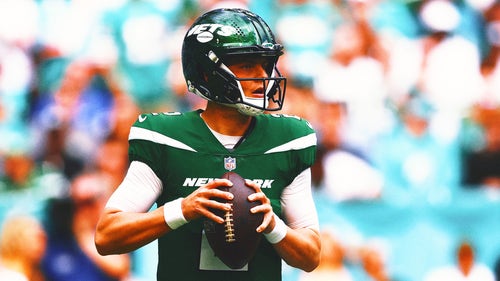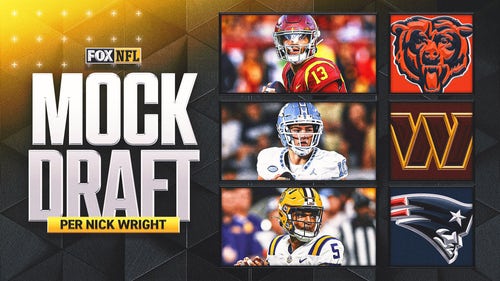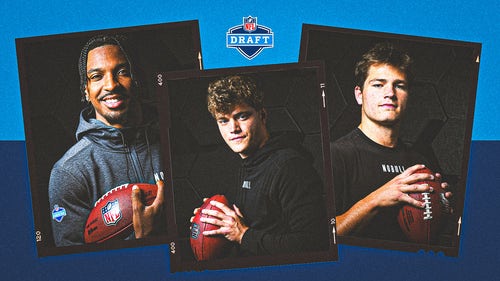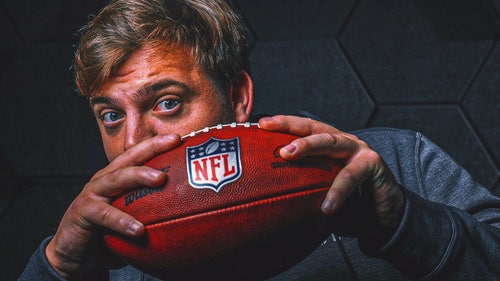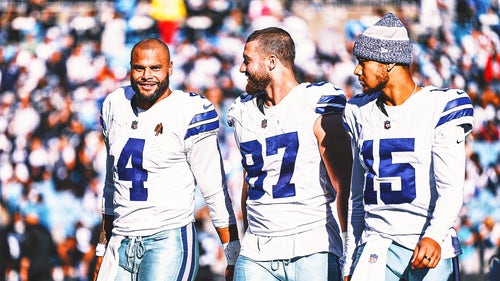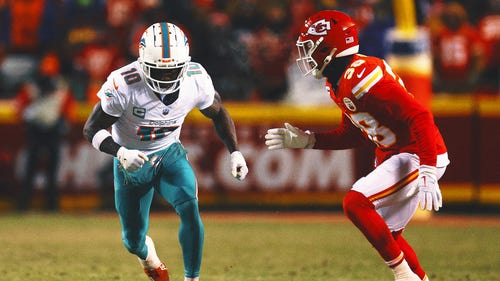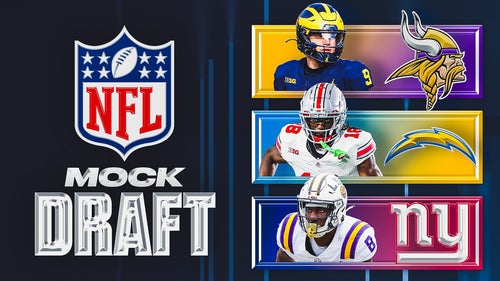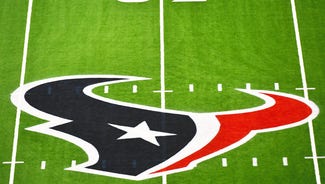
Tricks of the trade for playing in a freezing game in Green Bay

Having spent 10 of 13 professional seasons playing for teams based in cold-weather cities you learn that almost every player has his own tricks for fighting the frost.
With the San Francisco 49ers heading to Green Bay, where the forecast calls for a high of 0 and a low of minus-18 for Sunday's wild-card game on FOX, I'm going to offer some tips to Patrick Willis and the boys on what they can do to avoid the ultimate brain freeze.
In 2003, I was with the Miami Dolphins. An average December day in Miami is around 75 degrees. I vividly remember a rude awakening awaiting us as a Nor'easter had dumped 28 inches of snow on the Foxboro area in the days leading up to our game against the Patriots.
The field was protected from the snow by tarps. Once they were removed, however, snow continued to fall and the heating coils under the surface melted the snow and created a cold, wet, muddy mess.
The 25-degree temperature wasn't too harsh. What psyched me out was the 25-to-35 mile-an-hour winds that cut to the bone. Instead of partaking in my typical warm-up run before pregame warm ups, I opted to sip on chicken broth and watch the remainder of the 1 p.m. games.
I figured I would throw on a long-sleeve turtleneck and put on some long johns to get me through this one. Let's just say it didn't work and I never did that again. I wasn't going to pull a "2000-era, Tampa Bay Buccaneers 0-20 in games 40 degrees or colder" before I figured this one out.
No matter the conditions, I learned I had to get out there and warm up my body and kick-start my metabolism. You have to run and keep moving in order to increase your body temperature. That is the only way to truly keep warm for winter-condition games outdoors. The benches with heaters blowing and puffy jackets are also key as they insulate that initial sweat that you get going and help you keep that body warmth. Its like the ember that starts the fire and you need to maintain it.
I was stiff and cold the entire game and got my butt kicked throughout. I must have been moving at 75 percent that day, but Matt Chatham wasn't. As one of the Patriots' special teams gurus, he was kicking my ass all over that sloppy field. I was faster than he was, stronger too, and he beat me every time I went up against him. A licking I haven't forgotten to this day.
I wasn't the only one who didn't show up Sunday Dec. 7, 2003, at 4:05 p.m.; 23,058 fans opted to watch their beloved Pats from the warm and cozy comforts of their own home instead of the stadium as New England clinched the AFC East with a 12-0 win that snowy winter evening.
A couple weeks later we traveled to Buffalo to face the Bills. The conditions were comparable, minus the extreme wind. There was no way I was going to let the cold stop me from having a dominant performance. I pulled Zach Thomas aside and asked him what he did to keep warm and fight off the cold.
He told me to go into the training room and spray my hands and feet with Tough Actin' Tinactin and then wear sterile rubber gloves underneath my football gloves. Those two tips along with my pregame warmup made a substantial difference. We also had the hot chicken soup broth on the sideline throughout the game which not only kept you hydrated due to the sodium content, but also kept you warm. Not to mention it also tasted pretty darn good, too!
It wasn't until I played for the Bears when I learned how to embrace the cold as an ally to dominate less-equipped teams.
As a Bear, the weather played a factor in getting us one-to-two wins a year in December and January. In December of 2005 we had a stretch of sub-freezing games.
We had Green Bay at home in Soldier Field, traveled to Heinz Field to play the Pittsburgh Steelers in a snowy battle, then returned home to face Michael Vick and the Atlanta Falcons who wanted no part of the Sunday night matchup that brought a minus-3 degree game-time temperatures with the wind chill.
It seemed as if the Falcons' offense wanted to get off the field as quickly as possible so they could return to the sideline to put their coats and beanies on and sit on the heated benches. We finished up that stretch of cold games at Green Bay with another victory. We went 3-1 against our opponents and Jack Frost, with only the Steelers getting the best of us.
Lovie Smith always had practice outside. The only exception would be if we were playing a dome team; then would we practice in our indoor facility. He brought out the heaters and the chicken broth so the cold was enjoyable. Guys would do all sorts of quirky things in the cold from snowball fights to making a snowman version of Brett Favre.
On many occasions guys would take the cold weather challenge. You had to go out to practice with no sleeves and refrain from making any gestures of being cold. So you couldn't rub your hands together or wrap your arms around your body, and lastly you couldn't go around the heaters. Antonio Garay, one of our defensive linemen, walked away with the $500 prize quite a few times.
If it was 100 degrees or zero, Lovie wanted his players acclimate to the conditions they were going to play in.
One of the game-day rules for the Bears and Ravens -- and I would imagine any mentally tough team -- is that there are no long sleeves allowed under your jersey. That reinforces a mentally tough state of mind and it also is used as an intimidator to the opposing team, like a gorilla pounding on his chest in jungle saying "look at me I don't need sleeves in the cold."
Trust me players take note.
The offensive players didn't have these pacts, and we would respect the guys that followed suit with the defense. We would often make fun of receivers, especially because they were the culprits that would usually wear sleeves in the cold. After that first touchdown catch we would give them a pass though.
I took pride in the fact that I was coming out guns blazing in any temperature. In fact, I didn't wear anything under my uniform other than a jock and socks. A small cut up shirt would sit between my skin and shoulder pads as to not have something abrasive on my skin.
What allowed me to wear so little in cold games was a cocktail Brian Urlacher and Muhsin Muhammad revealed to me. There is a cream called Warm Skin that we would mix with Vaseline and Tiger Balm.
We would mix all these topicals together and rub them into our arms, legs, back … pretty much over our entire body. Make sure you put your jock on before you do this or you will get extremely uncomfortably hot in some of the wrong places.
As a Raven, heavy amounts of Vaseline would be rubbed on to players' arms and lower backs by trainers before games. Sizzle -- Terrell Suggs -- coined the term "LBG," or linebacker grease. Everyone wanted some LBG before the games even to the point where the refs would make us wipe some of it off because it was seen as a slippery substance. It served that purpose as well.
Where this became a ritual in Baltimore, I will never forget Jason Taylor ribbing me for always using Vaseline before games as a Dolphin. I told him to ease up because I use Neutrogena at home (for those of you who don't go back that far, Taylor was a spokesman for the line).
A lot of players put the shake-up heat packets in their shoes and in the palm of their gloves. They make special ones that stick on one side so you can put it inside our shoe above your toes and you don't even know they are there. A lot of players wear hand warmers around their waist as well and have the same heat packets in the warmers. There are also guys that wear the full head cover with the face cut out. Those work really well in keeping you warm.
Regardless of the cold temperature, players would work up a good sweat and lather. When a player is really warm in the extreme cold and takes his helmet off, this is when you see the infamous shots of steam coming off of players' heads.
During the game, everyone sat on the heated benches -- it was actually encouraged. If players were on the field for long periods of time and their hands were frozen, much like you would call a timeout in a critical situation for your guys to catch their breath and grab water, teams would take a timeout so guys can run to the heaters and warm up their bodies, but particularly their hands. This happened in extreme cases but I have seen it done before.
The hits in cold hurt 10 times more than the hits in the heat. Your skin shreds when everything is frozen and hard. Everything is harder in the cold and everything hurts more. Helmets are frozen in the cold as well. The heated benches even have a place to set your helmets and keep those warm.
Kickers and snappers are mostly standing in front of the heaters, trying to keep their hands and feet warm for the sparing but crucial moments when they are called upon. One of the many, many cold weather games I played in, I can remember the opposing team's heaters went out. If one team has or doesn't have something, the other sideline is not allowed to have it. They shut off our heaters. Both teams were freezing cold. Eventually they got theirs up and running again but they left ours off until we pointed it out. The field managers followed suit and turned our heaters back on.
One of my most bitter cold-weather game memories spawns from the AFC Championship Game in 2011.
Billy Cundiff would always stand at the opposite side of the field we were driving to score on. This put him further away from the action and the distraction of the game so he could focus. He was warming up in front of the heater and the sideline late in the fourth quarter of game against the New England Patriots. This was our last drive of the game. We needed a touchdown to win or a field goal to tie. The sideline markers read third down but in reality it was fourth down.
John Harbaugh called on Cundiff and he rushed over to kick the field goal. He had to sprint from the opposite 30-yard line to inside our red zone, which is a good 50-plus yards. We had a timeout to burn, but we didn't use it. Cundiff rushed in with the play-clock running down in an attempt for the tie. Consequently, he missed the kick and we went home instead of into overtime.
As we go into these playoffs, we all want to know which teams are mentally tough and prepared to play in frigid conditions. Petyon Manning has silenced many of his doubters, but skeptics still remain from last year's devastating divisional round game when the Broncos fell to the Ravens. Many people pointed at Peyton's inability to throw the ball deep down the field in the extreme cold.
Questions remain about the ability of the San Diego Chargers, Carolina Panthers and the New Orleans Saints to play in the cold as well. I haven't heard too many echoes about the San Francisco 49ers' challenges in the cold but this is something to keep an eye on Sunday in Lambeau.
These playoffs, though, with New Jersey/New York hosting Super Bowl XLVIII at Met Life Stadium in February, there will be no escape from Jack Frost … for anyone.






































































































































